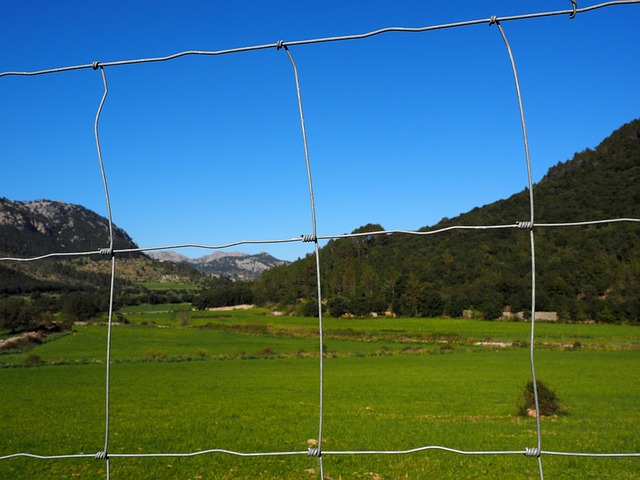In New Bedford, MA, a robust commercial fencing system is not just an addition to your property; it’s a crucial line of defense and a strategic investment. This article guides business owners through the process of securing reliable fencing contractors, highlighting key qualities, local regulatory aspects, popular fence types, installation best practices, and maintenance tips. By understanding these elements, you’ll be well-equipped to enhance your commercial space with a durable, functional, and aesthetically pleasing fence.
- Understanding the Importance of Commercial Fencing in New Bedford
- Qualities to Look for in Reliable Contractors
- Local Licensing and Permits: What You Need to Know
- Popular Fence Types for Commercial Properties
- The Installation Process: From Planning to Completion
- Maintaining Your Commercial Fence: Tips and Best Practices
Understanding the Importance of Commercial Fencing in New Bedford
In the vibrant business landscape of New Bedford, MA, a robust and secure fencing system is more than just an aesthetic addition. It serves as a vital line of defense for commercial properties, enhancing security and safety for businesses and their customers. Commercial fencing acts as a deterrent to potential intruders, protects valuable assets, and provides a clear boundary, ensuring the smooth operation of various establishments.
For New Bedford entrepreneurs, investing in reliable commercial fencing contractors is a strategic decision. Skilled professionals can install or repair fences tailored to specific business needs, be it a secure perimeter for a warehouse, a decorative fence for an office complex, or a temporary solution for construction sites. By choosing experienced contractors, businesses ensure their fencing meets safety standards and enhances the overall value of their properties.
Qualities to Look for in Reliable Contractors
When looking for reliable commercial fencing contractors in New Bedford, MA, it’s crucial to consider several key qualities. First and foremost, experience is invaluable; choose a contractor with a proven track record in handling projects similar to yours. This ensures they possess the necessary skills and know-how to complete your job efficiently and effectively. Additionally, check their licensing and insurance to guarantee compliance with local regulations and protect against potential risks or liabilities.
Reputation is another critical factor. Read reviews from previous clients to gauge their satisfaction levels and the contractor’s work ethic. A reputable company will maintain open lines of communication, provide transparent estimates, and adhere to timelines. They should also offer a warranty on their workmanship, demonstrating confidence in the quality of their services.
Local Licensing and Permits: What You Need to Know
When hiring commercial fencing contractors in New Bedford, it’s crucial to understand the local licensing and permit requirements. In Massachusetts, general contractors must be licensed by the Commonwealth, and this includes those specializing in fencing work. Look for a company that boasts current, valid licenses and insurance to protect your investment.
Additionally, before any construction begins, you’ll likely need various permits from New Bedford city officials. These may include building, zoning, or special use permits, depending on the scope of your project. Discussing permit requirements with your chosen contractor upfront ensures a smoother process and helps avoid potential delays or fines down the line.
Popular Fence Types for Commercial Properties
When it comes to commercial properties in New Bedford, MA, choosing the right fence type is a strategic decision that balances aesthetics, security, and functionality. Some of the most popular fence types for commercial spaces include chain link fences, known for their affordability and quick installation, making them ideal for temporary or budget-conscious projects. On the other hand, metal fencing, often composed of aluminum or steel, offers both durability and a sleek, modern look, suitable for businesses aiming to enhance their curb appeal.
Wooden fences are another preferred option, with styles like cedar or pressure-treated options providing excellent resistance against decay and insects. These fences can be tailored to fit specific designs, offering a natural beauty that complements various architectural styles. Additionally, vinyl fencing is gaining popularity due to its low maintenance requirements, color customization, and ability to mimic the look of wood without the ongoing care.
The Installation Process: From Planning to Completion
The installation process for a commercial fence begins with meticulous planning and ends with a robust, secure barrier. It starts with an on-site evaluation where contractors assess the property’s unique needs, topography, and surrounding environment. This step is crucial as it determines the type of fencing material suitable for the location—whether steel, wood, or vinyl—and designs a layout that meets both aesthetic and security objectives.
Once planning is complete, the team springs into action. They clear the site, ensuring all necessary permits are in place. Next, they lay the foundation, often involving intricate digging and concrete pouring to set posts securely. As construction progresses, skilled workers install panels, gates, and other fixtures. Finally, after thorough quality checks, the fence is complete, offering businesses enhanced security and improved curb appeal.
Maintaining Your Commercial Fence: Tips and Best Practices
A commercial fence is not just an investment; it’s a crucial component of your business’s security, safety, and overall appeal. To ensure its longevity and effectiveness, regular maintenance is essential. Start by inspecting the fence regularly for any signs of damage, such as broken panels, loose posts, or rust. Addressing these issues promptly will prevent them from escalating into larger, more expensive problems.
When it comes to upkeep, cleaning your commercial fence is just as important as repairing it. Remove any debris, such as leaves, branches, or trash that can accumulate on top of the fence. Use a pressure washer for a thorough clean, but be mindful of the fence’s material and manufacturer’s guidelines to avoid damaging it. Additionally, apply a fresh coat of paint or sealant every few years to protect against weathering and corrosion, preserving its aesthetic value and structural integrity.
